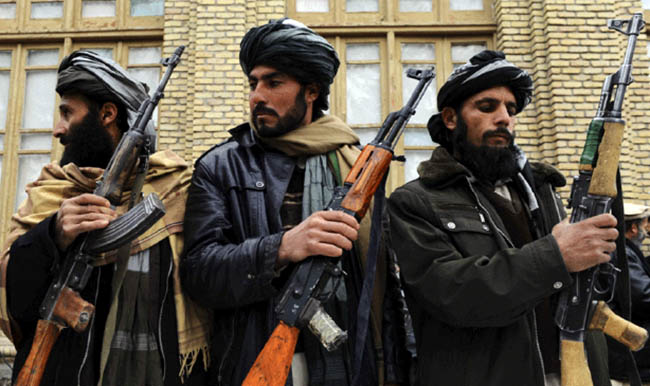Last year, Afghan nation sustained heavy casualties and warring factions played a deadly role. The current news is also unnerving for the nation as militancy lingers and people pay sacrifice on the basis of their race, color and creed. On the one hand, the pushy peace process failed to put enough pressure on the Taliban to come to negotiating table, on the other hand, the emergence of the self-styled Islamic State of Iraq and the Levant (ISIL) in Afghanistan put the nation, mainly the ethnic minority groups, at the mercy of escalated militancy.
Although Afghans keep their fingers crossed and pray for the best in every New Year, warring parties never stop violence and sometimes they are at a crossroads whether to hold talks or continue insurgency. Hezb-e-Islami Afghanistan (HIA), led by Gulbuddin Hekmatyar, succumbed to Afghanistan’s urge and made a peace agreement, however, the Taliban has still backed the wrong horse and keep on inflicting casualties upon the nation.
The affiliates to ISIL are believed to pose serious threat to Afghan nation within the current year through stoking sectarianism. They target the ethnic groups on the grounds of their race and color and ideological differences. Reportedly, about a dozen men were dead and wounded by a group of gunmen affiliated to ISIL in Baghlan on Friday due to their religious beliefs. Subsequently, the CEO’s second deputy said that ISIL had increased its activities in the country and linked the killing to small Takfiri groups stating that out of 100 terrorist groups in the world, 20 of them were active in Afghanistan. “They are part of Takfiri groups that are active in Syria, Iraq and some other countries. They have been active in Afghanistan for about one year,” Haji Muhammad Mohaqiq is cited as saying.
ISIL group first started its terrorist activities in Nangarhar province and then recruited fighters from Logar and Nuristan provinces. But recently the group carried out activities in Faryab, Jawzjan, Sar-e-Pul, Uruzgan and Baghlan provinces.
In addition, Mohammad Radmanesh, deputy spokesman of MoD said, “A number of armed individuals use the name of some groups to carry out some activities. They first change their flag and then their fighting tactics and carry out such activities that they did in Baghlan.” Indeed, there are some who operate under the ISIL’s flag and spread fear and terror. But the presence of ISIL is an undeniable fact and a number of individuals have apparently joined them in tribal belts.
The ethnic minority groups act is highly vulnerable to militancy not only in Afghanistan but also in Pakistan. To one’s surprise, five members of the Hazara community were injured in a targeted attack when unidentified armed persons fired at their taxi cab in Quetta, for which Lashkar-e-Jhangvi Al-Alami, a banned outfit, claimed responsibility. Hence, the occurrence of targeted attacks in the same day and on the same group in two neighboring countries make one believe that there is a strong link between assailants, who aim to stoke sectarianism.
The ISIL group, along with many other terrorist networks, has constantly targeted ethnic minority groups in Iraq, Syria, Pakistan and Afghanistan and seeks to impose its warped mind with the barrel of gun. Warring factions attempt to fuel sectarianism so as to trigger hatred and racial tensions among the nations and practice upon the policy of ‘divide and govern’. In other words, they shed the blood of an ethnic group to arouse a desire for vengeance and make them fall for their trick.
Earlier, political pundits believed that the ISIL group remained a serious threat to Afghanistan and recruited younger individuals in Nangarhar. No wonder, they intend to strengthen their bases anywhere possible after losing the ground in Syria. If ISIL group gains stronger foothold in Afghanistan and be able to trigger racial tensions, it would be a bitter pill for the National Unity Government (NUG) to swallow. Moreover, it should be noted that the presence of ISIL will menace the national unity and increase violence across the country in the future as this group sow the seeds of sectarianism constantly.
In addition, the escalated militancy will put the rights and dignity of the nation at stake. Life will remain as cheap as ever before and the blood of civilians, including women and children, will be spilt with impunity. To one’s unmitigated chagrin, bloodshed changes into a common practice in many countries, including Afghanistan, and one will hardly feel a guilty conscience about a murder.
Democracy is undermined in Afghanistan and the NUG in not able to protect the rights and liberty of the nation – this is believed to be the main reason behind the wide gap between state and nation. The voice of the public fall on deaf ears and the tragic stories are ended with words of condemnation from the officials. Most likely, a large number of perpetrators are at large despite trampling upon individuals’ rights and curtailing their freedom. The government is to unite the nation and eliminate all obstacles before national unity. Since terrorism and radical practices hamper unity and lead to political turbulence, combating this must be prioritized and Afghan soldiers are to be reinforced to take higher steps in strengthening democracy and counter-insurgency.
Home » Opinion » Sectarian Violence – A Relentless Curse
Sectarian Violence – A Relentless Curse
|

